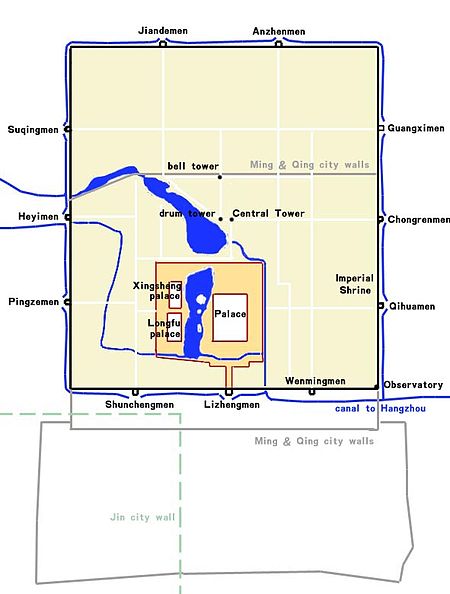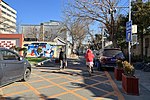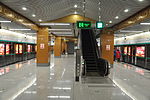Khanbaliq

Khanbaliq or Dadu of Yuan (Chinese: 元大都) was the winter capital of the Yuan dynasty of China in what is now Beijing, the capital of China today. It was located at the center of modern Beijing. The Secretariat directly administered the Central Region (腹裏) of the Yuan dynasty (comprising present-day Beijing, Hebei, Shandong, Shanxi, and parts of Henan and Inner Mongolia) and dictated policies for the other provinces. As emperors of the Yuan dynasty, Kublai Khan and his successors also claimed supremacy over the entire Mongol Empire following the death of Möngke (Kublai's brother and predecessor) in 1259. Over time the unified empire gradually fragmented into a number of khanates. Khanbaliq is the direct predecessor to modern Beijing. Several stations of Line 10 and Line 13 are named after the gates of Dadu.
Excerpt from the Wikipedia article Khanbaliq (License: CC BY-SA 3.0, Authors, Images).Khanbaliq
Banchang Alley, Dongcheng District 交道口街道 (首都功能核心区)
Geographical coordinates (GPS) Address Nearby Places Show on map
Geographical coordinates (GPS)
| Latitude | Longitude |
|---|---|
| N 39.933333333333 ° | E 116.4 ° |
Address
Banchang Alley
100010 Dongcheng District, 交道口街道 (首都功能核心区)
Beijing, China
Open on Google Maps











